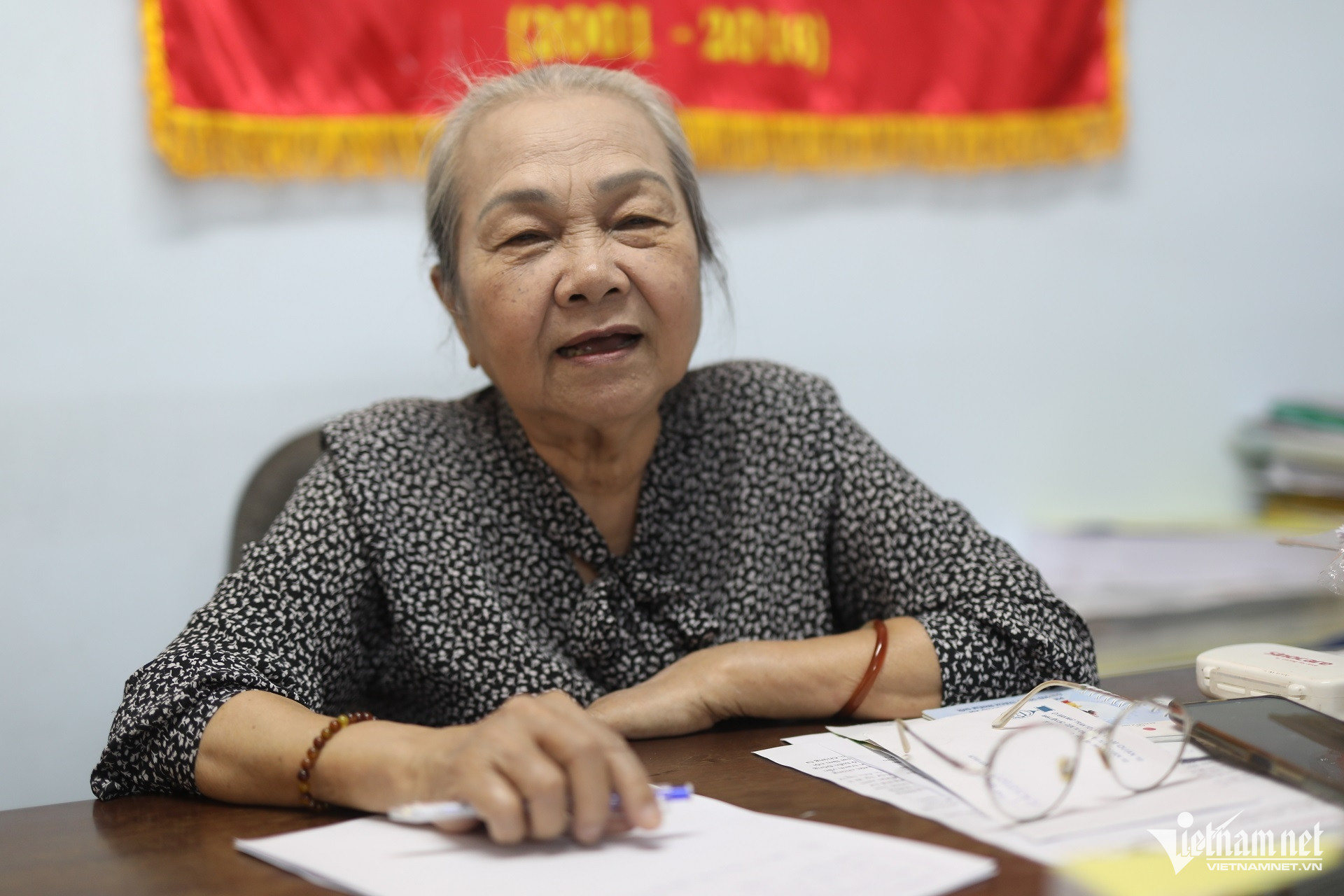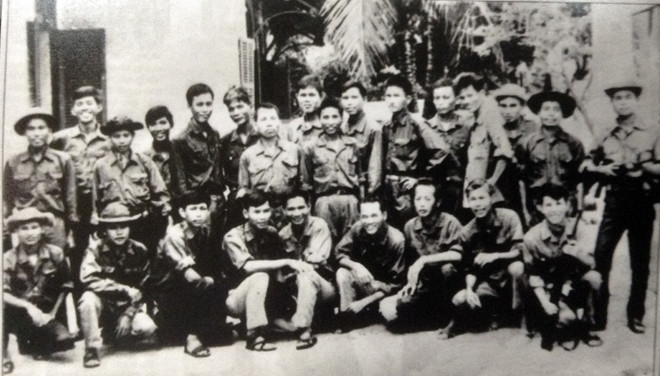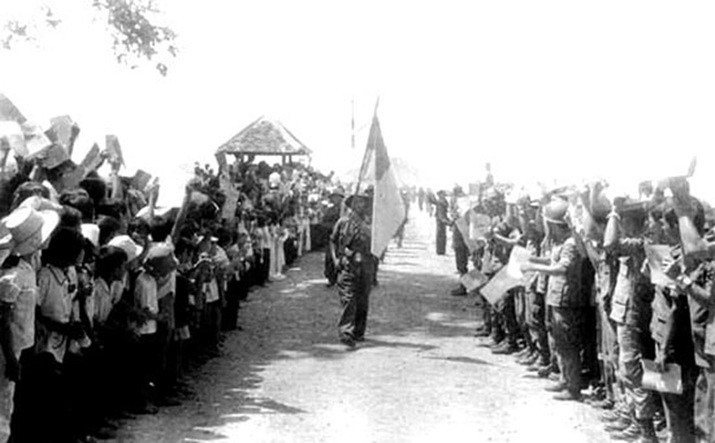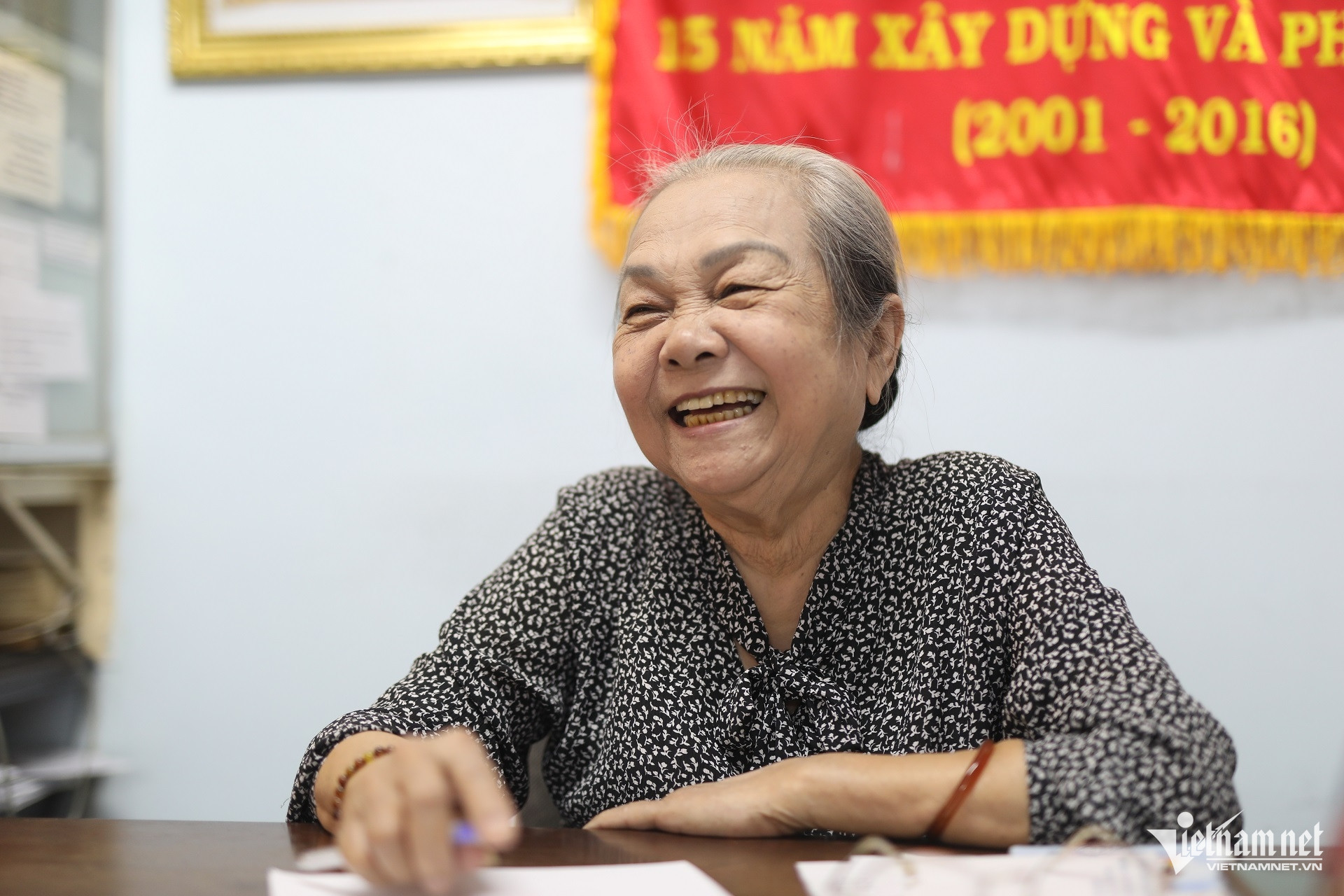In celebration of the 50th anniversary of national reunification, VietNamNet presents a series titled "April 30 - A New Era." Experts, military leaders, and living witnesses share their memories, lessons, and experiences from Vietnam's fight for liberation - a struggle powered by national unity, international solidarity, and the resilient spirit of the people.
This year, former Con Dao political prisoner Hoang Thi Khanh - now Head of the Ho Chi Minh City Liaison Committee for Former Political Prisoners and POWs - has been busy preparing for commemorative events.
Fifty years ago, however, she was enduring the final days of imprisonment at the infamous "hell on earth" of Con Dao.
The final days on the island

In April 1975, Con Dao prison held 7,448 inmates, including 4,234 political prisoners (494 women) and 3,214 criminal and military detainees.
Among the political prisoners, 2,488 were subjected to solitary confinement for years due to their resistance against prison regulations, while the rest were held in less restrictive conditions.
As Vietnam's liberation forces launched the 1975 Spring Offensive, enemy forces strengthened defenses on Con Dao, stationing over 1,700 armed personnel including soldiers, police, and prison guards. They even rebuilt strategic roads to suppress potential uprisings.
Each prison block managed to hide a radio to secretly monitor battlefield developments. "We cheered when we heard about victories in Phuoc Long, Long Khanh, and Xuan Loc," Khanh recalled.
But by April 22, the guards confiscated the radios, cutting off prisoners from outside news. Hope lingered, passed through whispered exchanges with kitchen workers, despite heavy surveillance.
Between April 26-28, as the enemy planted explosives around the prisons, inmates realized liberation was near - but feared mass extermination.
"We told each other that if we were to die, we'd die with dignity," Khanh said. They prepared extra clothes and scarves, ready for any emergency.
On April 29, while liberation forces entered Saigon, Con Dao buzzed with evacuation flights as U.S. advisors and puppet officials fled. By 4:30 PM, American personnel had abandoned the island.
That night, a local priest informed the prisoners, "The South has been liberated." At first, prisoners suspected a trap. Only after hearing a verified radio broadcast did they realize freedom had truly arrived.
Self-liberation at Con Dao

At dawn on May 1, political prisoners held a meeting and established a Provisional Island Committee to lead the uprising. Their goals: liberate all prison blocks, seize strategic locations, and establish a revolutionary government.
Women prisoners played vital roles, cooking, sewing supplies, and aiding logistics. Though liberation had come, vigilance remained high, fearing a potential enemy counterattack.
By May 2, the Provisional Committee radioed the mainland, asking for just two things: "We need portraits of President Ho Chi Minh and revolutionary flags."
At dawn on May 4, navy ships arrived, bringing the treasured symbols of victory. "We cried like children when we saw Uncle Ho's portrait at Pier 914," Khanh recalled.
Celebrations erupted on May 5 with a cultural performance organized by the newly freed prisoners. On May 7, Khanh left the island as part of the second group returning to the mainland.
Two revered mentors

Reflecting on her revolutionary journey, Khanh spoke fondly of two mentors who shaped her life: Tran Trong Tan and Phan Thi Tot.
Born into a Vietnamese family working in Cambodia’s rubber plantations, Khanh returned to Vietnam and was first guided into revolutionary work by Tran Trong Tan, a senior member of the Southern Central Committee’s Propaganda Department.
"Uncle Tan taught us through simple, relatable stories, making abstract ideals tangible," she recalled. His first lesson, 'For whom do we fight?' left a lasting impression on her.
Despite her humble beginnings, Khanh initially resisted being assigned to kitchen duty, equating it with servitude. Tan patiently explained that the revolution was like a clock, requiring every part to function in harmony. That lesson changed her mindset permanently.
Later, when assigned clerical tasks while undercover in Saigon, she grew frustrated. Again, Uncle Tan reminded her: "In revolution, perseverance is the greatest strength."
After their arrests, both Khanh and Tan were imprisoned at Con Dao.
Another guiding light was Phan Thi Tot, former Secretary of the Can Tho Provincial Party Committee. Tot, a tiny woman with the appearance of a humble farmer, was an expert in political struggle and survival under torture.
At Con Dao, Tot led prisoners with strategic wisdom:
Set clear, achievable goals during struggles.
Adapt to the group's endurance levels.
Prioritize preserving lives for future battles.
Even in hunger strikes, Tot meticulously planned every detail, ensuring unity and survival.
"She was a living example that resilience and flexibility require the greatest strength," Khanh said.
After their imprisonment, Tot continued to serve as Chairwoman of the Ho Chi Minh City Party Committee’s Inspection Commission. Khanh is currently working to propose honoring Tot posthumously as a Hero of the Armed Forces.
Satisfaction and lingering regrets

Following liberation, Khanh served in various senior Party roles, including as a Standing Member of the Ho Chi Minh City Party Committee and Chairwoman of the Party's Inspection Commission.
For over 25 years, she has led the Ho Chi Minh City Liaison Committee for Former Political Prisoners and POWs.
"My greatest satisfaction is that I always fulfilled my responsibilities without asking for anything in return," she said.
Yet one sorrow remains: "Many former political prisoners live in hardship. Some cannot access benefits because they’ve lost memory of their arrest dates or prisons," she lamented.
Still, Ho Chi Minh City, recognizing their contributions, allows them to participate in cựu tù activities and receive limited support.
Each year, Khanh mobilizes aid for the most vulnerable among them through the Fund of Compassion.
At this 50-year milestone, Khanh feels hopeful: "As our economy grows, the people's lives will improve. I believe peace and prosperity will allow social evils to fade."
She dreams of a breakthrough era for Vietnam after this historic anniversary.
Ngan Anh - Khanh Hoa
(As recounted by Mrs. Hoang Thi Khanh)